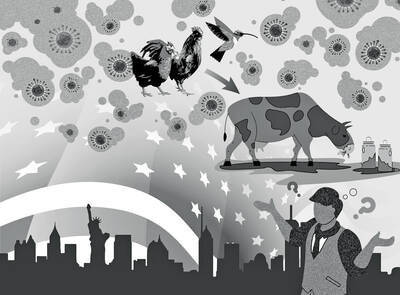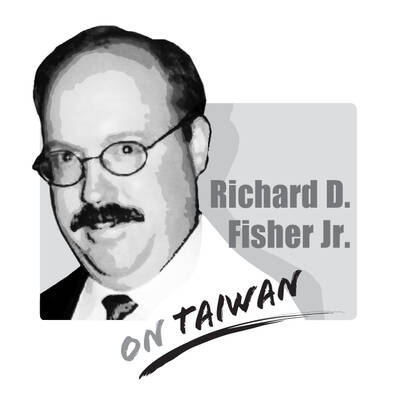NATO, the most successful military alliance in history, is stronger than it has ever been. Russia’s full-scale invasion of Ukraine in February 2022 underscored NATO’s continuing purpose and value, and the organization has since added two capable new members: Finland and Sweden. Yet while Russia is steadily losing soldiers, weapons and its longer-term economic resilience, it is Ukraine, not NATO, that is absorbing Russia’s blows.
What about the future? European leaders know that former US president Donald Trump has a solid chance of winning November’s US presidential election, and that a Trump restoration would cast doubt on the lasting commitment of NATO’s core contributor, along with the credibility of the security guarantees that make the alliance so powerful.
To be fair, the former president has raised some legitimate concerns. After Russia invaded Crimea in 2014, each member state pledged to spend at least 2 percent of national GDP on defense by this year. Two months ago, NATO Secretary-General Jens Stoltenberg announced that for the first time since the alliance’s birth in 1949, European members would collectively meet that target.
However, that is only because some states, particularly those closest to Russia’s borders, spend more than their quota.
Specifically, 13 of NATO’s 31 members still do not meet the 2 percent threshold, and Trump has again called into question their reliability as allies, asking: If they fear Russia so much, why are they still unwilling to spend 2 percent of GDP on their own security?
Nearly all European leaders recognize the need to spend more, and Trump’s recent taunt that the Russians should “do whatever the hell they want” to under-spenders (who, of course, are among the farthest from the Russian border) has many Europeans wondering what a second Trump presidency might mean for them. Could NATO continue to exist without a clear and credible US commitment?
During ceremonies earlier this month to celebrate the alliance’s 75th anniversary, Stoltenberg proposed a 100 billion euro (US$108.53 billion) five-year fund for Ukraine that would not depend on the outcome of the US presidential election.
However, beyond Ukraine policy, European fears about their lack of readiness have also moved European Commission President Ursula von der Leyen to call for a European defense commissioner.
This would hardly be the first ambitious plan that European leaders have undertaken in the past few years. They oversaw the rapid rollout of vaccines during the COVID-19 pandemic, provided emergency relief for governments that needed it, and, after February 2022, launched a costly and complex program to end dependence on Russia for energy supplies. They did all this while absorbing historic numbers of refugees who began arriving about a decade ago.
If they can accomplish all that, why can they not Trump-proof European security by creating an independent, strongly coordinated European defense industrial policy, supported by the EU budget and the single market? Unfortunately, there are three reasons to be skeptical, at least in the near term.
First, a stronger role for the European Commission in defense and industrial policy would take time to design and implement. During what is sure to be a complicated process, the plan would face opposition from national authorities who do not want to surrender control of these policies.
That is especially true for members who are concerned that France — the longtime advocate of collective European defense and the only current EU member with nuclear weapons — would have the most power to set the continent’s security policy.
Second, the EU remains deeply dependent on US weapons systems, access to US intelligence, and Washington’s role as the driving force behind NATO’s interoperability across countries. The continuing threat from Russia would persuade more Europeans than ever to spend more on defense, build intelligence capabilities and increase the size of their militaries, but these processes would take a decade or more to complete. The present danger would not allow for such a long transition.
Finally, at least a few European governments would gladly choose alignment with Trump over ever-closer ties with their fellow EU members.
Hungarian Prime Minister Viktor Orban and Slovakian Prime Minister Robert Fico are obvious examples, and in the coming years, we might well see other (and more systemically important) EU members elect populist, Russia-friendly governments. Italian Prime Minister Giorgia Meloni has been steadfast in her support for Ukraine, but that might change if Trump returns to the White House.
If Marine Le Pen finally becomes president of France in 2027, closer alignment with Trump becomes plausible even in the Elysee Palace, where there has long been a desire for more independent European foreign and security policies.
Beyond the November US election, there is a longer-term question to consider. If Trump loses, would the drive toward a more isolationist and transactional US foreign policy die with his political career, or have new generations of American voters — not old enough to remember the international role the US played, for better and for worse, between 1945 and 2008 — changed US public attitudes toward the “global leadership” that both Democrats and Republicans once insisted the US provide?
If so, not even a victory by US President Joe Biden would end the debate within Europe about its own security.
Ian Bremmer, founder and president of Eurasia Group and GZERO Media, is a member of the executive committee of the UN High-Level Advisory Body on Artificial Intelligence.
Copyright: Project Syndicate

The bird flu outbreak at US dairy farms keeps finding alarming new ways to surprise scientists. Last week, the US Department of Agriculture (USDA) confirmed that H5N1 is spreading not just from birds to herds, but among cows. Meanwhile, media reports say that an unknown number of cows are asymptomatic. Although the risk to humans is still low, it is clear that far more work needs to be done to get a handle on the reach of the virus and how it is being transmitted. That would require the USDA and the Centers for Disease Control and Prevention (CDC) to get

For the incoming Administration of President-elect William Lai (賴清德), successfully deterring a Chinese Communist Party (CCP) attack or invasion of democratic Taiwan over his four-year term would be a clear victory. But it could also be a curse, because during those four years the CCP’s People’s Liberation Army (PLA) will grow far stronger. As such, increased vigilance in Washington and Taipei will be needed to ensure that already multiplying CCP threat trends don’t overwhelm Taiwan, the United States, and their democratic allies. One CCP attempt to overwhelm was announced on April 19, 2024, namely that the PLA had erred in combining major missions
As Maldivian President Mohamed Muizzu’s party won by a landslide in Sunday’s parliamentary election, it is a good time to take another look at recent developments in the Maldivian foreign policy. While Muizzu has been promoting his “Maldives First” policy, the agenda seems to have lost sight of a number of factors. Contemporary Maldivian policy serves as a stark illustration of how a blend of missteps in public posturing, populist agendas and inattentive leadership can lead to diplomatic setbacks and damage a country’s long-term foreign policy priorities. Over the past few months, Maldivian foreign policy has entangled itself in playing
On April 11, Japanese Prime Minister Fumio Kishida delivered a speech at a joint meeting of the US Congress in Washington, in which he said that “China’s current external stance and military actions present an unprecedented and the greatest strategic challenge … to the peace and stability of the international community.” Kishida emphasized Japan’s role as “the US’ closest ally.” “The international order that the US worked for generations to build is facing new challenges,” Kishida said. “I understand it is a heavy burden to carry such hopes on your shoulders,” he said. “Japan is already standing shoulder to shoulder